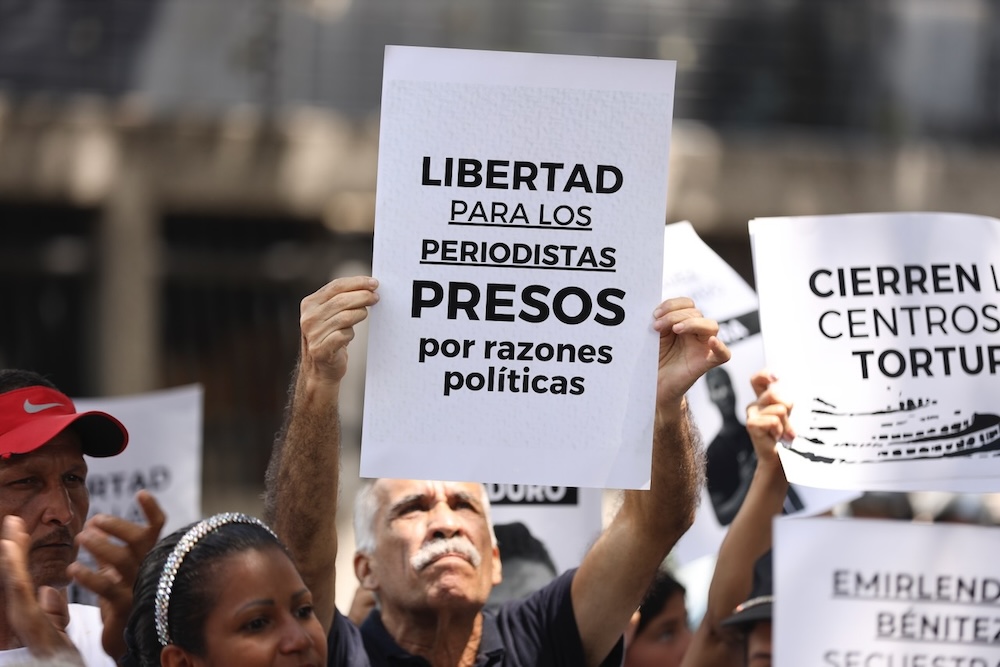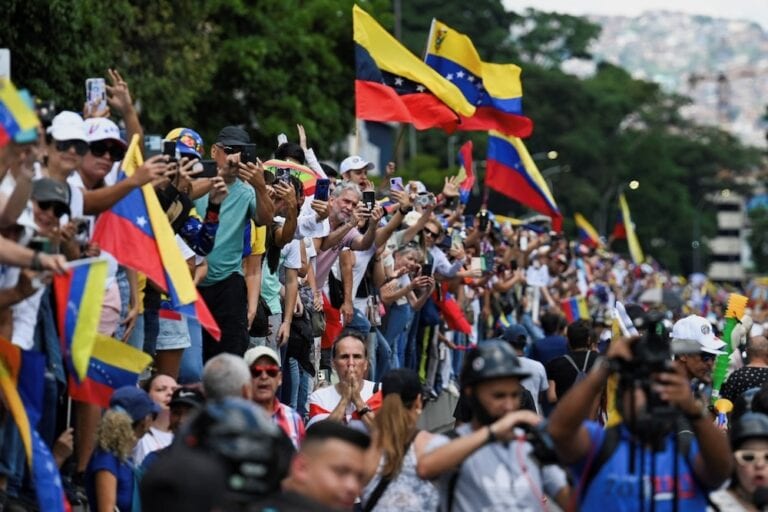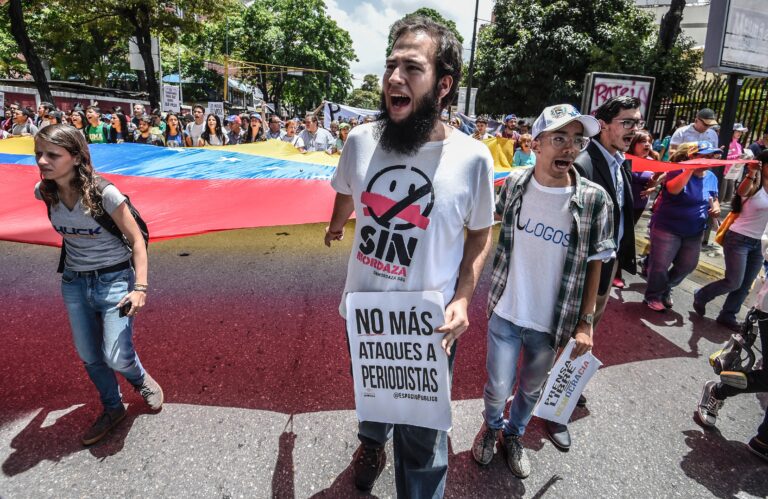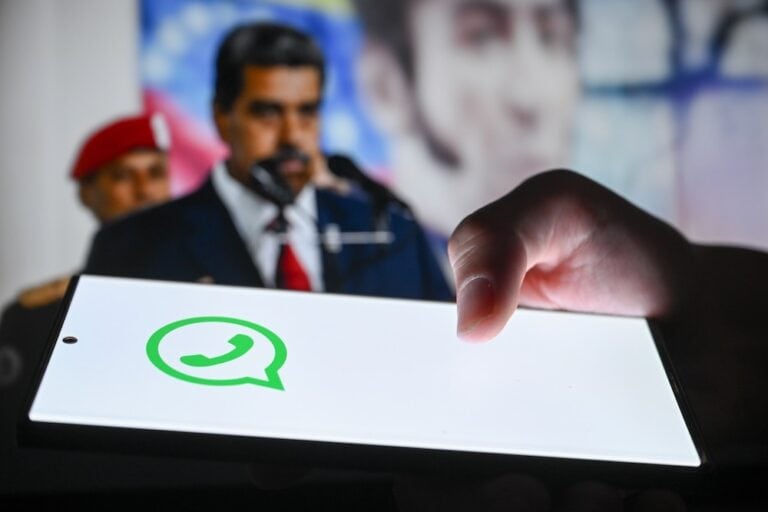In the face of the growing crackdown on press freedom sparked by Venezuela’s presidential election, Reporters Without Borders (RSF) and seven partner organisations (including IFEX-ALC) have joined forces to expose the harrowing obstacles currently facing the Venezuelan press. The report found over 228 violations of press freedom, and notes that at least eight journalists remain arbitrarily imprisoned.
This statement was originally published on rsf.org on 18 November 2024.
In the face of the growing crackdown on press freedom sparked by Venezuela’s presidential election, Reporters Without Borders (RSF) and seven partner organisations have joined forces to expose the harrowing obstacles currently facing the Venezuelan press. Their report found over 228 violations of press freedom, and notes that at least eight journalists remain arbitrarily imprisoned. RSF urges the Venezuelan government to release the imprisoned journalists immediately, and calls on the international community to prioritise efforts to restore journalism in Venezuela.
Today, 18 November, RSF and seven international organisations have released a new report, “Restrictions on press freedom and media suffocation in the electoral context in Venezuela”, at an online event where the Special Rapporteur for Freedom of Expression of the Inter-American Commission on Human Rights (IACHR), Pedro Vaca, presented his thoughts on the issue.

The report documents different types of attacks against the Venezuelan press that occurred between 1 July and 28 August, the period surrounding the presidential election, which was held on 28 July. It also features interviews with around thirty journalists from national, regional and foreign media outlets, and members of Venezuelan civil society organisations.
The situation is dire yet progress is achievable, and the report includes tangible recommendations for the Venezuelan government and the international community to guarantee press freedom in this politically volatile nation.
“The report published by RSF and allied organisations is an alarming summary of what we have been following closely in recent months: the Venezuelan press lives under constant fear and risk. The Nicolás Maduro government has intentionally isolated the country, harshly silencing local journalists and expelling or restricting access for foreign media professionals. We demand the immediate release of the eight journalists who were arbitrarily detained while covering the electoral process, and we call on the international community to pressure the Venezuelan government to guarantee press freedom and the journalists’ rights.”
Artur Romeu, Director of RSF’s Latin America Bureau
Here are some key points from the report:
Alarming figures
- 228 press freedom violations.
- 62 physical and verbal attacks on the press.
- 11 foreign journalists were arbitrarily detained and expelled.
- At least 8 journalists remain arbitrarily imprisoned.
- At least 29 websites belonging to media outlets and press organisations have been blocked.
- 45 cases of speeches that stigmatised the press.
- 10 media outlets and news agencies were targeted by these speeches.
Recommendations to the Venezuelan State:
- Immediately release the eight journalists still in prison.
- Guarantee journalists and media outlets immediate access to the detailed results of the vote that took place on 28 July.
- Stop abusing the judicial system to persecute and silence the press.
- Stop misusing subsidies and administrative measures to control radio and television outlets.
- Stop cancelling the passports of Venezuelan journalists and media workers without notifying them ahead of time or providing justified grounds.
- Unblock portals, news sites and verification platforms whose access has been restricted.
Recommendations to the international community:
- Facilitate direct and open dialogue with international and multilateral organisations operating both inside and outside the country to establish channels of direct communication in emergency and high-risk situations for journalists and media workers.
- Maintain constant monitoring of the country’s press freedom situation in the country.
- Strengthen the financial sustainability of the media in Venezuela.
- Strengthen and advocate for the establishment of media alliances that promote journalistic work regionally, nationally and internationally.
- Put pressure on international communications actors such as Meta, Google and Spain’s Telefonica to ensure their transparency regarding concessions to the Venezuelan government, such as blocking content, intercepting messages, and sharing metadata of their clients’ communications.
Access the full report (in Spanish)
Venezuela is ranked 156th out of 180 countries in RSF’s 2024 World Press Freedom Index.



